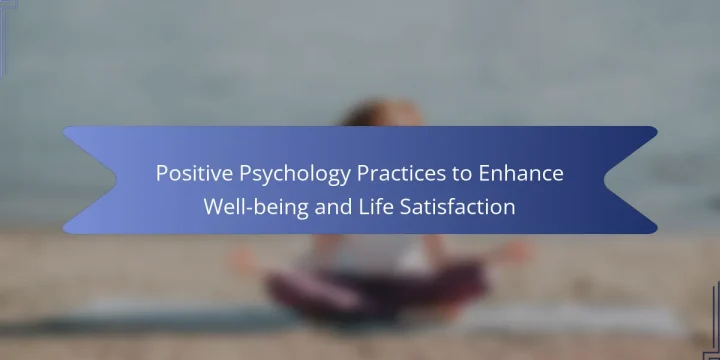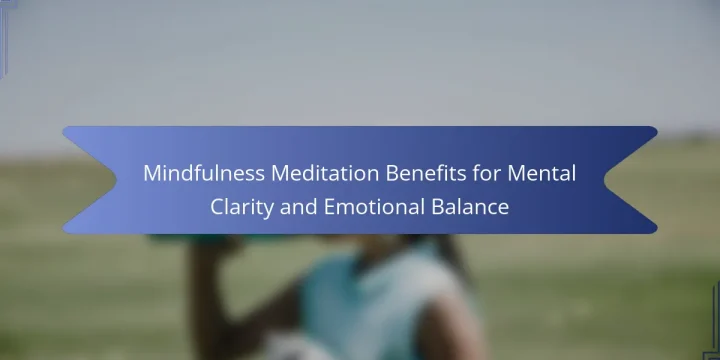
Positive psychology practices can significantly enhance well-being and life satisfaction. Key practices include gratitude journaling, mindfulness meditation, and acts of kindness. These methods foster resilience, improve emotional regulation, and promote meaningful connections. Research indicates that consistently applying these techniques leads to better mental health outcomes and increased happiness. What are the core positive psychology practices for enhancing well-being? Positive psychology practices significantly enhance well-being and life satisfaction. Key practices include gratitude journaling, mindfulness meditation, and engaging in acts of kindness. Gratitude journaling encourages individuals to reflect on positive experiences, fostering a sense of appreciation and fulfillment. Mindfulness meditation promotes present-moment awareness, reducing stress and enhancing emotional regulation. Acts of kindness not only benefit others but also boost the giver's happiness and sense of connection. Research shows that consistently applying these…




